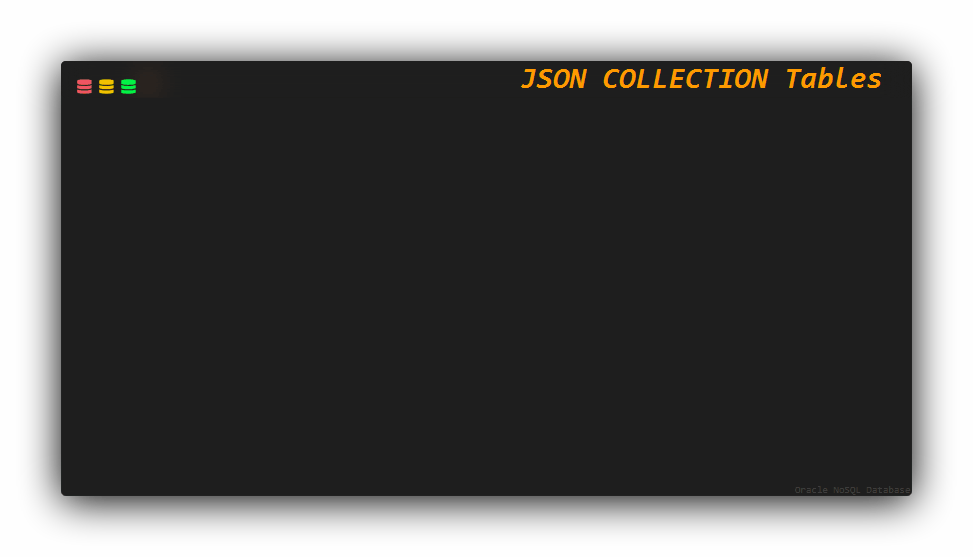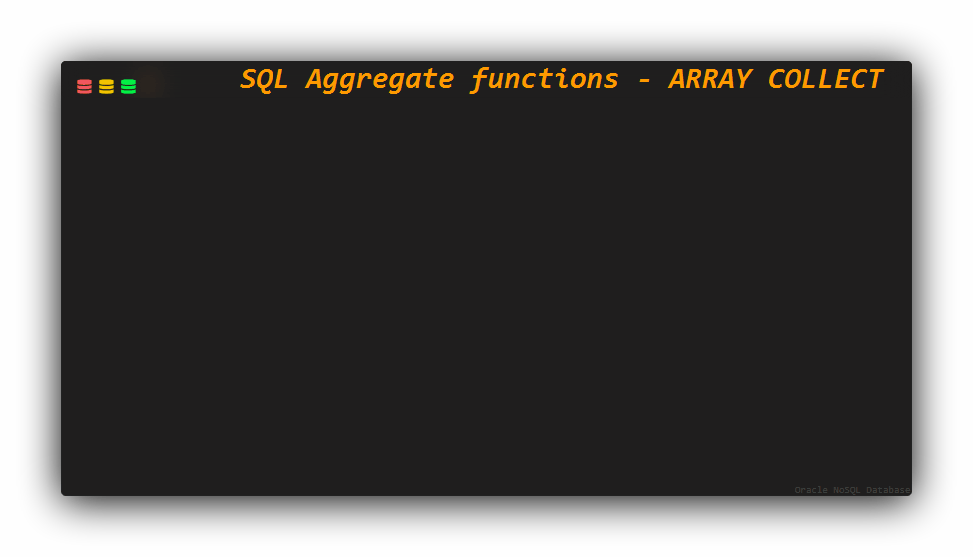We are excited to announce the general availability of Oracle NoSQL Database, Enterprise Edition (EE), and Community Edition (CE) Version 23.3.
Oracle NoSQL Database is everywhere. You may have already reaped the benefits of Oracle NoSQL Database operating behind the scenes. Whenever you swipe your credit cards, visit a website, manage your IoT devices, play an online video game, or use your phone, the data consumed in these activities are probably stored and processed in Oracle NoSQL Databases running globally.
New Feature Highlights
1. JSON Collection Tables
A critical part of the application development process is modeling your data. Proper modeling of your data is crucial to application performance, extensibility, application correctness, and finally, your application’s ability to support rich user experiences.
The Oracle NoSQL Database gives the data modeler extensive flexibility when modeling application data. Understanding the tradeoffs associated with each level of flexibility is extremely useful in making wise data modeling decisions. Unlike the relational data modeling with fixed schemas, NoSQL Database is largely about schema flexibility – the ability to change how data is organized and stored easily.
Oracle NoSQL Database introduces a new type of table called JSON Collection tables. This is particularly useful for applications that store and retrieve their data purely as documents. JSON Collection tables are created to simplify the management and manipulation of documents. The JSON collection table eliminates the need to declare fields during the table creation.
You create a JSON collection table with one or more primary key fields. When you insert data into the table, a single document is created without explicitly declaring columns. The document can contain any number of JSON fields. The primary key fields can include IDENTITY columns and UUIDs.

You can create a JSON collection table with MR_COUNTERS for multi-region based tables. You can supply an optional TTL value during the table creation. You can also create indexes on top of your JSON Collection tables.
2. New SQL Aggregate Functions
We have added three new SQL aggregate functions: count(distinct), array_collect(), and array_collect(distinct).
The array_collect function computes the input expression on each row of a group. It collects all the resulting (all or distinct) values (except NULL values) into an array. The function returns the constructed array.

3. Multi-region Table Agent Groups
Stores with multi-region tables can now achieve greater throughput for data transfer from remote regions by deploying multiple XRegion agents to replicate data from a remote region.
You can achieve horizontal scalability by dividing the shards across multiple XRegion agents. To achieve the latency and throughput requirements of the application, shards are mapped to XRegion agents in a round-robin manner (balancing the agent load). Each XRegion agent will map to at least one shard.
Each XRegion group consists of independent XRegion agents, and each agent in the group runs on a host node responsible for handling one or more shards of the data store. You should add XRegion agents on dedicated hosts that do not contain any Storage Node configured.
Oracle NoSQL Database in a Nutshell
It is a flexible, multi-model, multi-region, hybrid-cloud, active-active database designed to provide a highly available, scalable, performant, and reliable data management solution to meet today’s most demanding workloads. Focusing on simplicity and developer productivity, deploying in hybrid-cloud or on-premise environments is automated and completed with just a few clicks. In addition, NoSQL’s built-in cross-region replication can be enabled in minutes to deploy a fully active-active system.
Oracle NoSQL Database is well-suited for high volume and velocity workloads, like Internet of Things, customer 360, online advertising, fraud detection, consumer scale persistent session management, user personalization, and online gaming. In addition, developers can use a single application interface to build applications that run anywhere quickly.
Learn more about Oracle NoSQL Database and Oracle NoSQL Database Cloud Service.
